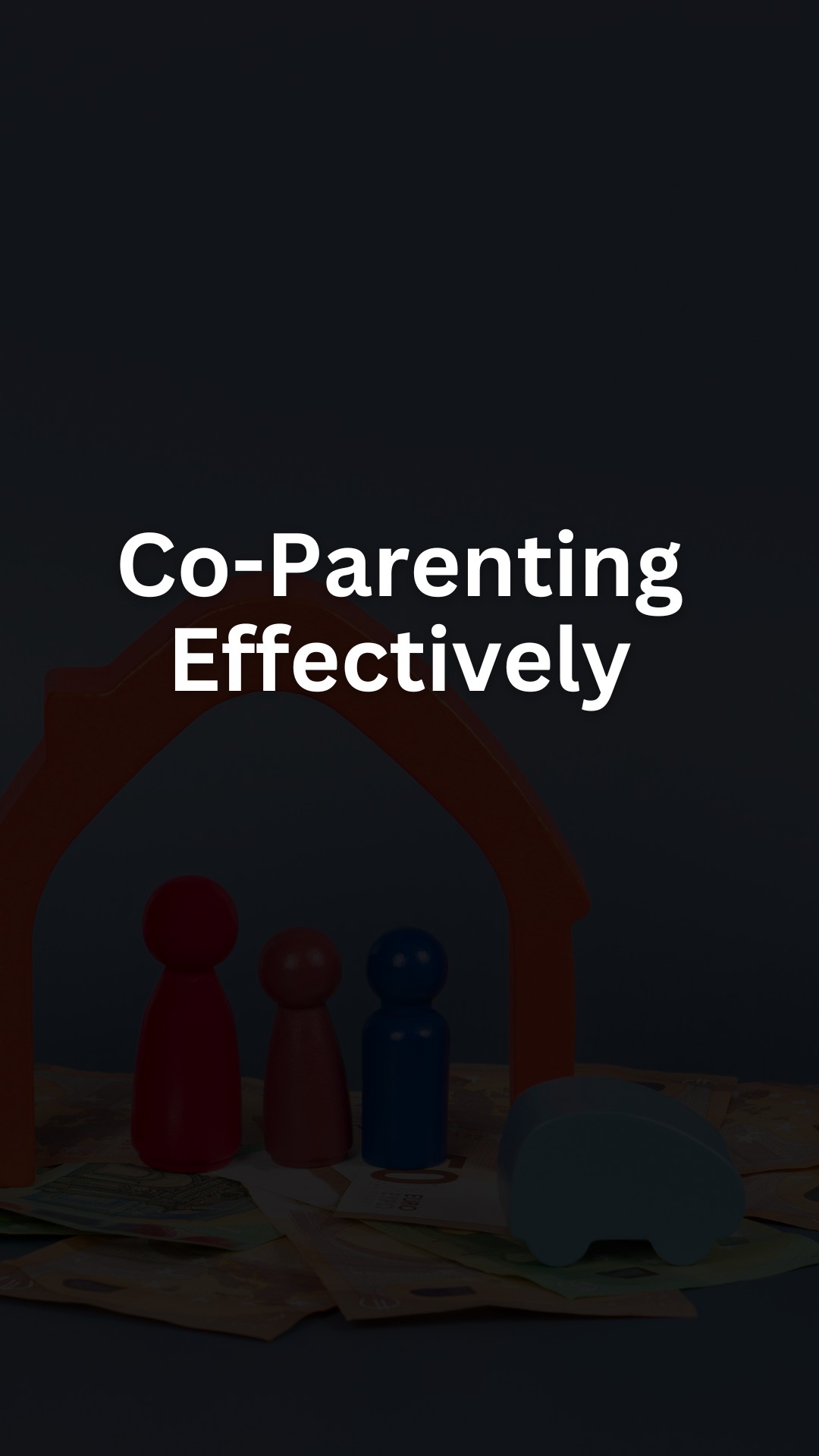Divorce is a challenging event for any family, but it can be even more difficult when you have young children.
It’s important to focus on the well-being of your kids during this time. Helping them navigate through the changes effectively is crucial to their emotional health.
Children may feel confused, scared, or sad about the changes happening around them. You need to be patient and understanding as they express their feelings.
Make sure they know that both parents still love them, even though the family structure is changing.
Clear communication is key. Keep your children informed in an age-appropriate way about what to expect.
Make a point to maintain routines as much as possible.
This stability can help your children feel more secure during uncertain times.
Understanding the Legal Process

Navigating the legal process of divorce can seem overwhelming, especially when you have young children.
Key steps include choosing a reliable attorney, understanding the types of custody, and preparing for mediation or trial.
Choosing the Right Attorney
Choosing the right attorney is crucial. Look for a lawyer who specializes in family law and has experience with child custody cases.
They should be knowledgeable about state laws and court procedures.
Meet with a few attorneys to ask about their experience, approach to cases, and fees.
It’s important to feel comfortable and confident in their ability to represent you.
A good attorney will explain your rights and keep you informed throughout the process.
Filing for Divorce
Filing for divorce starts with preparing the necessary documents. This includes the petition for divorce, which outlines the grounds for divorce and your intentions regarding child custody, support, and property division.
You will need to file these documents with the court and serve them to your spouse. Your spouse then has a set period to respond.
Accurate and complete paperwork helps avoid delays. Your attorney will guide you through the requirements and ensure everything is filed correctly.
Understanding Custody Types
Custody can be physical or legal. Physical custody determines where the child lives, while legal custody involves decision-making about the child’s upbringing, such as education and medical care. Both can be either sole or joint.
In sole custody, one parent has full control, whereas joint custody involves both parents sharing responsibilities.
The court’s priority is the child’s best interests, considering factors like parental stability, the child’s relationship with each parent, and any history of abuse.
Preparing for Mediation or Trial
Once custody is contested, mediation or a trial may be necessary.
Mediation is a process where both parents work with a neutral third-party to reach an agreement. It’s less formal and can be quicker than a trial.
If mediation fails, the case goes to trial. Both sides present evidence and arguments. The judge then makes a final decision.
Preparation involves gathering documents, witness statements, and understanding court etiquette. Your attorney will help you plan and present your case effectively.
Prioritizing Your Children’s Well-Being

When navigating a divorce, focusing on your children’s well-being is vital. This involves clear communication, maintaining routines, and addressing their emotional needs.
Communicating About the Divorce
Be honest with your children about the divorce. Use simple and age-appropriate language. Explain what is happening and why, ensuring they know it is not their fault. Allow them to ask questions, and answer them truthfully.
Avoid blaming your ex-spouse or discussing adult issues.
Keep conversations positive and reassuring.
You should aim to speak with your children together if possible. This shows unity and reduces their anxiety.
Regularly check in with them to let them express their feelings. Let them know it’s okay to feel sad, angry, or confused.
Maintaining Stability and Routines
Children thrive on routine. Try to keep their daily schedules as consistent as possible. This includes school activities, mealtimes, and bedtime routines.
Stability helps them feel secure during this uncertain time.
Create a shared calendar for important dates and events. This can include school functions, sports practices, and family gatherings.
By planning ahead, you can prevent disruptions to their routine.
Maintain their usual social activities and encourage time with friends.
Familiar surroundings and routines are comforting. This stability helps to reduce stress and confusion.
Supporting Your Child’s Emotional Needs
Recognize and validate your child’s feelings. Ensure them that it’s normal to experience a range of emotions. Offer them plenty of love, support, and reassurance. Physical affection like hugs can be very calming.
Seek professional help if needed, such as consulting a child psychologist or counselor.
They can provide an outlet for your child to express feelings they might not want to share with you.
Encourage open communication and active listening. Avoid dismissing their concerns. Instead, show empathy and patience. Let your child know that their feelings matter and that you are there for them no matter what.
Co-Parenting Effectively

Effective co-parenting means working together with your former partner to create a stable and loving environment for your children. It’s crucial to develop a plan, set clear boundaries, and resolve conflicts peacefully.
Creating a Co-parenting Plan
A co-parenting plan lays out how you and your ex-partner will share responsibilities for your children.
List the days and times each parent will have the children. Include details about holidays and special occasions.
Specify how decisions about education, health, and activities will be made.
Communication is key, so decide on the best ways to keep in touch.
Some parents use apps specifically designed for co-parenting. Remember, flexibility can help if unexpected events occur.
Important points:
- Scheduling: Define custody and visitation.
- Decision-making: Agree on how to handle major decisions.
- Communication: Choose the best method to talk.
Setting Boundaries
Setting boundaries is essential for a healthy co-parenting relationship.
Agree on rules for both households. This consistency helps children feel more secure.
Avoid negative talks about your ex in front of the kids.
Respect each other’s time and space. Don’t intrude or make unplanned visits.
Make sure to discuss any changes in schedule well in advance.
Keep conversations focused on the children and avoid bringing up past issues.
Keep in mind:
- Consistency: Set common rules across both homes.
- Respect: Honor each other’s personal space and time.
- Focus: Keep communication child-centered.
Resolving Conflicts Amicably
Conflicts will happen, but it’s important to handle them calmly.
Listen to each other’s viewpoints without interruption. Use “I” statements to express your feelings without blaming. For example, “I feel concerned when our plans change last minute.”
Find compromises that benefit the children.
If necessary, seek the help of a mediator to find common ground.
Avoid arguing in front of the children—it can be very stressful for them.
Keep a goal of maintaining a positive and collaborative relationship for your children’s sake.
Tips for resolving conflicts:
- Active Listening: Hear your co-parent’s perspective.
- Calm Communication: Use neutral language.
- Seek Help: Consider mediation if needed.
Managing Your Finances

Facing divorce with young children involves careful financial planning. You need to budget wisely, understand child support, and secure your future financially.
Budgeting for Single Parenthood
Creating a budget is crucial.
List your income sources, such as salary, child support, and any government assistance. Compare this with your expenses like rent, utilities, groceries, and childcare.
Cut non-essential spending to ensure essential needs are met.
Keep an emergency fund for unexpected expenses.
Track your spending using tools like budgeting apps or spreadsheets.
Staying organized helps you see where your money goes and where you can save.
Regularly reviewing and adjusting your budget keeps your finances on track.
Navigating Child Support
Child support is meant to help with your child’s needs.
Learn how much you are entitled to, or how much you need to pay, by consulting legal guidelines or a financial advisor.
Keep records of payments received or made. This ensures transparency and accountability.
If you face issues receiving payments, legal aid can assist you with enforcement.
Understanding how child support is calculated helps in preparing your budget and ensuring your children’s needs are met.
Protecting Your Financial Future
Think long-term. Focus on maintaining or improving your credit score.
Pay bills on time and reduce debt to avoid financial strain.
Consider meeting with a financial advisor for personalized advice.
Invest in savings plans like college funds for your children.
Planning for retirement is equally important.
Set aside money in retirement accounts like 401(k) or IRAs.
Diversifying your investments protects against market fluctuations and builds a secure financial future.
Finding Support Systems

Finding support systems is crucial for navigating a tough time like divorce, especially with young children.
There are several trusted sources of support that can help, including family and friends, professional services, and community resources.
Leveraging Family and Friends
Turning to family and friends can provide emotional support, practical help, and a listening ear.
Lean on those you trust the most. They can help with childcare, cook meals, or just be there to talk.
Don’t hesitate to ask for specific help, like picking up the kids from school or babysitting for a few hours.
It’s helpful to create a small, dependable circle you can count on during this time.
Talking with family can also provide comfort to your children. Knowing they have extended support can make them feel more secure.
Seeking Professional Support
Professional support can come from therapists, counselors, and support groups.
Therapists can offer personalized strategies to cope with stress and handle emotions. They can also provide guidance on managing your children’s needs and emotions.
Look for a licensed family therapist with experience in divorce cases.
Counseling sessions can also be beneficial for children, helping them process the changes in their lives.
Support groups offer a space to share experiences and receive advice from others in similar situations.
You’ll find you’re not alone and can learn how others are handling similar challenges.
Utilizing Community Resources
Many communities offer resources such as free or low-cost counseling, support groups, and educational workshops.
Your local community center or religious institution may have programs specifically designed for families going through divorce.
You can also find resources at your child’s school.
School counselors and programs can provide additional support for your children, helping them adjust and thrive despite the family changes.
Dealing with Personal Transition

Navigating divorce can be a personal challenge. It involves handling your grief, rediscovering yourself, and approaching dating as a single parent.
Handling Grief and Loss
Divorce often brings feelings of grief and loss.
It’s important to accept these emotions and let yourself feel them. You might experience sadness, anger, or confusion.
Finding a support system, like friends, family, or a therapist, can be crucial. Talking about your feelings helps release tension.
Strategies to cope:
- Journaling
- Regular exercise
- Joining a support group
Rebuilding Personal Identity
Divorce can leave you questioning who you are. Rebuilding your personal identity is key.
Start by exploring hobbies and interests that you enjoy. This is a time to reconnect with old passions or discover new ones.
Ways to rediscover yourself:
- Taking a class
- Volunteering
- Traveling
Focus on what makes you happy. Building a new routine can also bring a sense of stability and accomplishment.
Dating as a Single Parent
Dating as a single parent can be challenging but rewarding.
It’s important to balance your needs with those of your children.
Be honest with potential partners about your situation. Take things slowly and ensure you’re emotionally ready.
Tips for dating:
- Communicate openly
- Set boundaries
- Prioritize your children’s well-being
Addressing Legal Changes

When going through a divorce with young children, you need to consider legal changes that can impact your family’s future.
Key areas to focus on include updating important documents and understanding how taxes will be affected.
Updating Wills and Beneficiaries
You should update your will to reflect any changes in your family structure. This makes sure your wishes are clear and respected.
It’s also important to remove your ex-spouse as a beneficiary from your will, insurance policies, and retirement accounts.
Consider who will be the guardian of your children if something happens to you. This is crucial to ensure they are cared for by someone you trust.
Consult with a family law attorney to help you make these updates legally binding.
Understanding Tax Implications
Divorce changes your tax situation in many ways. You might need to file as single or head of household instead of married. This affects your tax brackets and deductions.
Also, note that child support payments are not tax-deductible, and you cannot count them as income.
On the other hand, alimony may be taxable for the recipient but not deductible for the payer.
Make sure you understand which parent can claim the child as a dependent, which can lead to significant tax benefits.
Consulting a tax advisor can help you navigate these changes.
Ensuring Consistency in Discipline

Consistency in discipline is crucial for young children going through a divorce. It helps them feel secure and understand what is expected of them.
Agreeing on Parenting Styles
You and your ex-partner need to agree on core parenting styles. This means discussing and deciding together on key rules and values.
Consistency helps children know what to expect, which can provide stability.
Meet regularly to adjust and align your views. Use tools like calendars or apps for tracking shared rules and schedules.
Be open to compromise, keeping your child’s well-being as the top priority.
This unified front can prevent your child from trying to manipulate the situation by playing one parent against the other.
Enforcing Rules Across Households
Children need the same rules to apply in both homes. If bedtimes, screen time, or homework rules change, they may become confused.
Discuss these rules clearly with your ex-partner and agree to enforce them equally.
Regular check-ins can ensure you’re both on the same page. If one parent doesn’t follow through, children may test boundaries more often.
Simple changes, like keeping chore lists similar, can make a big difference.
Navigating Holidays and Special Events

During a divorce, holidays and special events can be particularly challenging for families with young children. It’s essential to approach these times with careful planning and sensitivity to ensure smooth transitions and positive experiences.
Coordinating Schedules
When planning for holidays, start by discussing schedules as early as possible.
Create a shared calendar that both parents can access. This helps avoid misunderstandings and ensures that everyone knows where the children will be during special times.
Make sure to have open and respectful conversations about any planned activities or trips. It’s important to be flexible and willing to compromise.
Consider alternating holidays each year. For example, one parent might have the children for Thanksgiving on even years and the other on odd years.
Write down the plan and be clear about pick-up and drop-off times and locations. Doing so will help prevent disputes and reduce stress.
Creating New Traditions
Holidays can be a chance to establish new traditions that children can look forward to.
Start by engaging with your children to find out what activities they enjoy the most. Whether it’s baking cookies, decorating the house, or a special family outing, these new traditions can bring joy and a sense of normalcy.
Involve your children in planning these activities. This gives them a sense of control and excitement about the holidays. It can also help them cope with the changes in their family structure.
Balance old traditions with new ones to keep a sense of continuity while embracing the new family dynamics.
Remember, quality over quantity—focus on creating meaningful experiences rather than trying to do too much. Simple, memorable traditions can often have the most lasting impact.
Taking Care of Yourself

It’s crucial to attend to your own well-being while managing the stresses of divorce and parenting young children. Taking time for self-care and stress management can help you stay healthy and provide the best support for your kids.
Practicing Self-Care
Taking care of your body and mind is vital. Ensure you get enough sleep each night—aim for at least 7-8 hours.
Eating well-balanced meals with plenty of fruits and vegetables can boost your energy levels.
Drinking enough water throughout the day helps keep you hydrated and alert.
Exercise is another key part of self-care. Even a short walk can improve your mood. Try to find at least 30 minutes each day for physical activity.
Yoga and meditation are also good ways to relax both your body and mind.
Making time for hobbies you enjoy can lift your spirits. Whether it’s reading a book, painting, or listening to music, engaging in activities that make you happy is important.
Managing Stress Effectively
Divorce can be a big source of stress, so finding ways to handle it is essential.
Developing a support network of friends or family members you can talk to can help a lot. Being able to share your feelings with someone who listens can make you feel less alone.
Sometimes, professional help is necessary. Talking to a therapist can help you navigate your feelings. They can provide strategies for coping and managing your emotions.
Deep-breathing exercises and mindfulness can also help reduce stress. Taking a few minutes each day to focus on your breathing can calm your mind.
Keeping a journal can help you process your thoughts and feelings.
Planning and organizing your day can help you feel more in control. Writing down what you need to do and checking off tasks as you complete them can reduce anxiety.
Taking small breaks throughout your day to relax can make a big difference in how you feel. Even a few minutes to pause and reflect can help keep stress at bay.
Planning for the Future

After a divorce, planning for the future is crucial. You need to set long-term goals and adapt to life changes to ensure stability and happiness for you and your children.
Setting Long-Term Goals
Think about what you want for your children and yourself in the long run. Create clear and realistic goals.
For instance, focus on your children’s education, emotional well-being, and financial security.
Make a list of what you want to achieve. This could include saving for college, extracurricular activities, or therapy sessions.
Discuss these goals with your ex-partner if possible. Effective communication can make co-parenting easier.
Financial planning is also essential. Set a budget and stick to it. Consider consulting a financial advisor to help manage your money wisely.
Adapting to Life Changes
Divorce means adjusting to new routines and situations. Be prepared for changes in living arrangements, school schedules, and social activities.
Flexibility is key to handling these new realities.
Children might find it hard to cope with changes. Keep communication open and encourage them to express their feelings.
Reassure them that both parents will continue to support them.
Your life will change too. Finding new hobbies or interests can help you adjust.
Stay positive and patient with yourself. Seek support from friends, family, or support groups to navigate this challenging time.
Anticipate potential challenges and plan for them. For example, have a backup plan for childcare or work arrangements.
Frequently Asked Questions

Divorce can be challenging, especially with young children involved. This section answers common questions to help navigate through the process.
Who gets the house in a divorce when there are minor children involved?
In many cases, the primary caregiver may stay in the house to provide stability for the children. Courts often prefer to keep children in a familiar environment.
What are the most effective strategies for co-parenting during and after a divorce?
Effective communication and consistency are key. It helps to keep a shared calendar and agree on rules and routines. Regularly checking in about the children’s well-being is also important.
How can parents minimize the negative impact of divorce on young children?
Parents should maintain a routine, offer reassurance, and encourage open communication. Avoiding conflict in front of the children is crucial. Seeking professional help, like a counselor, can also be beneficial.
What legal considerations come into play when deciding custody arrangements?
Courts look at the best interests of the child, including the child’s relationship with each parent, the child’s needs, and each parent’s ability to meet those needs. Legal representation can help navigate this complex process.
How can divorcing parents manage their finances effectively, particularly the costs of child support?
Creating a detailed budget is essential. Understanding child support guidelines and working with a financial advisor can help manage costs. Communication about financial needs and responsibilities is vital for co-parents.
What are the psychological effects of divorce on children, and how can they be addressed?
Children may experience feelings of sadness, anger, or confusion.
Parents should reassure them that they are loved and that the divorce is not their fault.
Counseling and support groups can provide additional help.